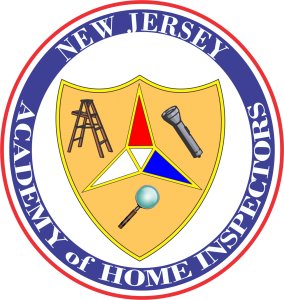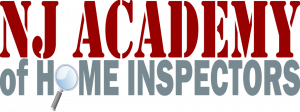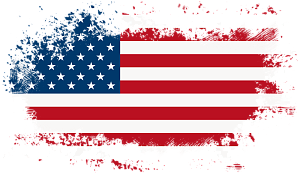NEW PROPOSED BILL MANDATING ALL HOME INSPECTORS TO CONDUCT AN ENERGY ANALYSIS AND CODE INSPECTION WITH EVERY HOME INSPECTION PERFORMED.
This bill is sponsored by Assemblyman JOHN F. MCKEON and will require Home Inspectors to include in a home inspection report an energy analysis for the home, prepared in accordance with the energy inspection code adopted by the Commissioner of Community Affairs.
Click below to see the bill.
HOW DOES THIS BILL AFFECT HOME INSPECTORS?
- Conflicts with N.J. Admin Code 13:40-15.16: This proposed bill conflicts with the N.J. Admin. Code § 13:40-15.16 which state home inspections are not code compliant inspections.
- Increased Inspector Liabilities: Should a problem arise in an area where codes weren’t checked (even if it’s outside the inspector’s specified purview), disgruntled homeowners might claim they believed that the entire home was inspected for code compliance, given that some areas were. This inconsistency can then become a potential liability for inspectors, as they could face legal actions from parties claiming misrepresentation or misunderstanding of the inspector’s role. Uniformity in the scope of inspection – whether it’s all for code or none for code – helps to set clear expectations and reduces potential areas of dispute and liability.
- Software Changes: Home inspectors using software to generate reports will need to be changed to include energy analysis, leading to additional costs. This means years of creating narratives must now be transferred to new software. Lets not forget the cost of purchasing new software and the learning curve that goes with it.
- Additional Training: Home inspectors WILL need to undergo additional training to understand and accurately report on energy efficiency based on the new energy inspection code. This WILL entail both time and financial investment.
- Increased Inspection Time: Incorporating energy analysis into a home inspection WILL increase the amount of time each inspection takes, potentially reducing the number of inspections a home inspector can complete in a given timeframe.
- Upfront Costs: Inspectors WILL need to invest in new equipment and/or software to conduct energy analyses according to the new code, which could be a financial burden, especially for individual or smaller inspection businesses.
- Liability Concerns: With the introduction of a new category of inspection, there could be increased liability. If an inspector misses an energy flaw or reports inaccurately on the energy efficiency of a home, they could be at risk for lawsuits or complaints.
- Market Confusion: Initially, there might be confusion in the market regarding the necessity and implications of energy analysis in home inspection reports. Clients might not understand why they are now getting additional information or why inspection prices have increased.
- Possible Increase in Pricing: Due to the added time and potential equipment costs, home inspectors WILL need to increase their prices, which could make home inspections less accessible for some potential home buyers.
- Potential Delays: As the energy inspection code is developed and implemented, there WILL be periods of uncertainty or delays for home inspectors trying to ensure compliance.
- Overlap with Existing Energy Auditors: In areas where energy auditors are already prevalent, there WILL be overlap or competition between the services of home inspectors and energy auditors, potentially affecting business for both.
- Possible Resistance from Stakeholders: Existing home inspectors who have been in the industry for a long time might resist these changes, leading to a divide in the industry between those who readily adopt the new requirements and those who resist.
A more feasible solution would be to introduce a new licensing category. This would lead to a separate report, which would in turn generate its own income. Moreover, homes that are purchased without the need for a home inspection could now opt for a separate energy analysis. This could pave the way for a completely new revenue stream. However, for home inspectors to fully capitalize on this and to ensure both their own protection and that of their clients, there should be a distinct report and a separate licensing category.
If you want to include an energy analysis and code inspection for all home inspections conducted, DO NOTHING.
However, if you wish to safeguard the integrity of traditional home inspections and prevent them from being burdened with additional state mandates regarding code inspections, please VOICE YOUR CONCERNS. You can copy and paste the letter provided below (or draft your own) and send it to Assemblyman JOHN F. MCKEON at AsmMcKeon@NJLeg.Org.
Additionally, use the link provided below to locate and contact your elected officials, informing them of your stance. It’s crucial to also let the Home Inspection Advisory Committee (HIAC) know your views. Given that they are mentioned in the bill, their input could be pivotal. Reach out to them at MillerK@dca.njoag.gov.
It’s essential to act before it’s too late. Together, by raising our collective voices, we can make a significant impact.
Dear Senator McKeon,
This in reference to your bill that mandates the DCA to adopt energy inspection code, and requires licensed home inspector to report energy analysis for each home inspected for buyer in contemplation of purchase. I’d like to draw your attention to the conflict it presents with existing regulations.
This proposed bill conflicts with the N.J. Admin. Code § 13:40-15.16, which is detailed below:
Section 13:40-15.16 – Standards of Practice (a) All licensees must adhere to the standards of practice outlined in this section when conducting home inspections. In accordance with the standards established here, the objective is to provide clients with information about the condition of the systems and components of the home as discerned at the time of the home inspection.
(b) This section explicitly does not obligate a licensee to:
- Determine compliance with codes, regulations, and/or ordinances.
It’s evident that this bill clashes with the previously standards of practice for home inspectors. To necessitate home inspectors to undertake code compliance inspections, there would need to be a change in N.J. Admin. Code § 13:40-15.16. It’s important to note that code inspectors often specialize in one or two areas, given that there are thousands of codes for each discipline (e.g., electrical, plumbing) which can vary by country, region, and even local jurisdiction. This specialization underscores why home inspectors are not currently required to conduct code compliance inspections.
It is also worth mentioning that if home inspectors are mandated to inspect for codes in specific areas but not in others, it can create ambiguity about the scope and responsibility of their role. This inconsistency in what’s inspected for code compliance versus what is inspected only for condition can lead to confusion for homeowners, buyers, and other stakeholders.
Should a problem arise in an area where codes weren’t checked (even if it’s outside the inspector’s specified purview), disgruntled homeowners might claim they believed that the entire home was inspected for code compliance, given that some areas were. This inconsistency can then become a potential liability for inspectors, as they could face legal actions from parties claiming misrepresentation or misunderstanding of the inspector’s role. Uniformity in the scope of inspection – whether it’s all for code or none for code – helps to set clear expectations and reduces potential areas of dispute and liability.
A more feasible solution might be to introduce a new licensing category. This would involve training licensees based on the New Jersey Energy Star Home Program. This approach would keep the liability separate from the home inspector, eliminate the need to modify N.J. Admin. Code § 13:40-15.16. Furthermore, as you’re aware, not every home undergoes a home inspection. By implementing this, you can ensure that every newly purchased home receives a separate energy inspection. Moreover, creating this new professional category would allow for the development and governance of its own inspection standards without necessitating changes to existing home inspection laws.
Sincerely,
Your Name
Home Inspector
Your Company
NJ Home Inspector License #


